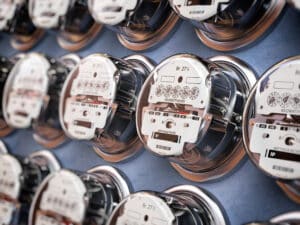
A draft energy code will let all-electric buildings be designed to less-stringent energy efficiency ratings.
After two key senators complained that the administration was “depriving the public of a full opportunity to participate,” the Department of Energy Resources is giving people about 10 additional days to weigh in on its straw proposal for state building code changes that it hopes will encourage builders to shift away from fossil fuel heating in favor of electrification.
Comments on DOER’s stretch code update and new municipal opt-in specialized stretch code will now be accepted until 5 p.m. on Friday, March 18 rather than the end of the day Wednesday, March 9, DOER announced Monday. The agency said the decision to extend the comment period came “in response to stakeholder requests.”
Sens. Michael Barrett and Cynthia Creem, the chairs of the Telecommunications, Utilities and Energy Committee and Senate Committee on Global Warming respectively, last week wrote to DOER Commissioner Patrick Woodcock and, among other issues, said the way that DOER had scheduled the five required public hearings, including a Friday evening session, meant that “the Baker Administration is depriving the public of a full opportunity to participate.”
The fifth and final public hearing was held Tuesday afternoon and the written comment deadline was initially set for 5 p.m. Wednesday. DOER will now accept comments until 5 p.m. on March 18. The department said emailed comments should be sent to stretchcode@mass.gov and include the subject line “Stretch Code Straw Proposal Comments.” Written comments can be sent to the attention of Nina Mascarenhas at DOER, 100 Cambridge St., Suite 1020, Boston, MA, 02114.
Updating the existing stretch code and creating a new net-zero specialized stretch code for cities and towns to adopt is one of the more technical but meaningful steps Massachusetts is planning to take to achieve net-zero emissions by the middle of the century.
More than half of the emission reductions needed to meet the 2050 commitment will have to come from personal vehicles (transitioning from gas- to electric-powered cars) and residential space heating, according to the Baker administration. Last year’s climate law requires the new net-zero code be in place by the end of 2022.




 |
| 

